Ukraine marks bleak war anniversary with news of plane downing
Ukraine marks two years of war weakened by a lack of Western aid while Russia is emboldened by fresh gains, with NATO chief Jens Stoltenberg urging Kiev and its allies not to "lose heart".
The second anniversary of the war comes as Ukraine's outgunned troops are struggling to hold the frontline and doubts swirl over future support from the United States.
"The situation on the battlefield remains extremely serious. President Putin's aim to dominate Ukraine has not changed, and there are no indications that he is preparing for peace," Stoltenberg said in a recorded message Saturday.
"But we must not lose heart. Ukraine has demonstrated remarkable skill and fierce determination again and again."
Kiev sought to mark the anniversary on an upbeat note, claiming that it shot down a highly-advanced Russian reconnaissance aircraft over the Sea of Azov. If confirmed, it would be the second of the prized spy planes that Kiev has claimed to destroy within two months.
Stoltenberg claimed that Ukraine was now closer to NATO than ever before despite Putin’s bid to close the door to eventual membership of Kiev in the US-led military alliance.
"Ukraine will join NATO. It is not a question of if, but of when,” he said.
European Commission chief Ursula von der Leyen also praised what she called Ukraine's "extraordinary resistance" before heading to Kiev along with several other Western leaders to mark the occasion.
However two years into the war, Ukraine is on the defensive, having suffered setbacks with the failure of its 2023 counteroffensive.
The overall picture remains bleak due to the US Congress blocking a vital $60 billion aid package. This has come on top of delays in promised European deliveries.
The Russian army has in turn built up a position of strength thanks to booming war production, while Ukraine's troops are short of manpower and running low on Western-supplied ammunition for artillery and air defenses.
On Saturday, Defense Minster Sergei Shoigu visited Russian forces inside Ukraine.
"Today, in terms of the ratio of forces, the advantage is on our side," he told troops at a command center. The army's statement said Shoigu was briefed that Russian forces were on the offensive after taking the industrial hub of Avdiivka.
Ukraine said its forces shot down “another valuable Russian A-50U aircraft” over the Sea of Azov which lies between Russia and Ukraine.
According to Russian and Ukrainian reports, the aircraft was destroyed on February 16.
The 15-crewed Beriev A-50, which is estimated to cost over $300 million to produce, is an airborne early warning and control aircraft. Ukrainian forces allegedly shot down another Beriev A-50 over the Sea of Azov on January 14.
Speaking at the United Nations, Foreign Minister Dmytro Kuleba stressed that Ukraine will win the war “sooner rather than later”.
Kuleba said Moscow’s aim was to “destroy Ukraine and they’re quite outspoken about it”.
He was countered by Russia’s UN Ambassador Vassily Nebenzia who blamed the West for fomenting the war and accused Ukraine of being a tool of Western geopolitical ambitions.
On Thursday, the Washington Post cited officials as saying that US military planners were using the Ukraine war as "an active and bountiful research opportunity" to prepare for a conflict with more sophisticated adversaries such as Russia or China.
One official told the paper that the lessons taken from Ukraine stand to be “an enduring resource”.
Washington and its NATO partners have viewed Ukraine as a proxy war to weaken Russia. While the Biden administration has touted this policy as “for Ukraine,” it has severely harmed the country.
Ukraine's President Volodymyr Zelensky this week described the situation on the front as "extremely difficult" due to delayed Western supplies of military aid.
Britain said Saturday it would spend $311 million over the next year to replenish Ukraine’s artillery ammunition reserves.
Since the outbreak of the war, the UK has pledged more than $8.8 billion of military assistance to the ex-Soviet republic.
Also, more than 20,000 recruits from the Ukrainian armed forces have received training in the UK since the beginning of 2022.
However, with no end to the war in sight, governments that offered Ukraine short-term help now face a much bigger bill than they expected and are looking to control the spending.
Flocks of residents took to the streets of Berlin on Friday evening to protest against the government's decision to provide more weapons to Ukraine.
Protesters gathered in front of the Parliament building for a candlelight vigil, urging the German government to halt its offer of weapons to Ukraine, and actively promote the peace process.
Since the outbreak of the Russia-Ukraine conflict, Germany and the European Union have been impacted by the spillovers from the conflict.
Opinion polls indicate a significant decline in the willingness of G7 citizens to continue providing more weapons to Ukraine, with a growing number of protesters feeling that supplying arms to Ukraine will not lead to any early resolution of the conflict.
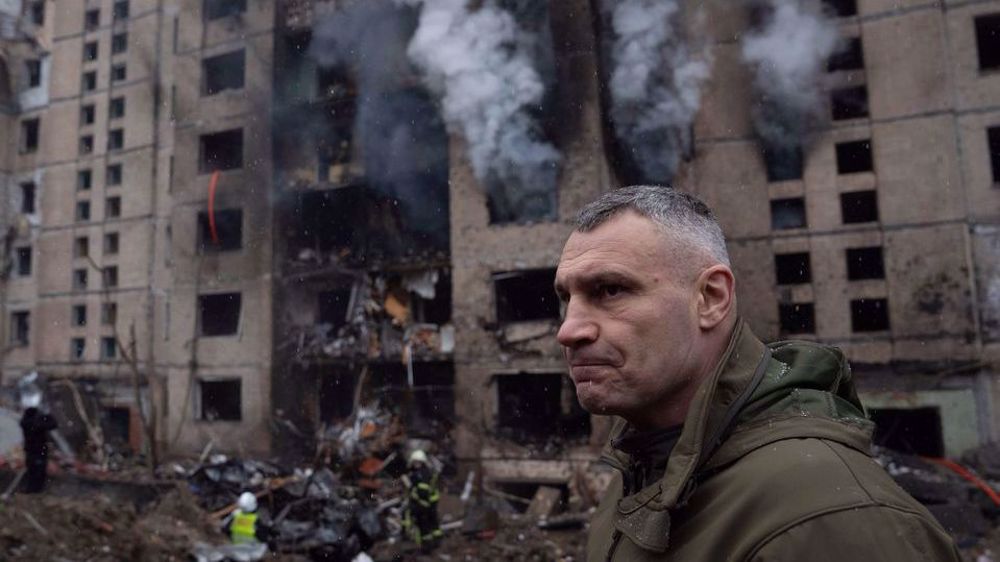
Ukraine may have to 'give up land' to Russia to secure peace: Kiev mayor
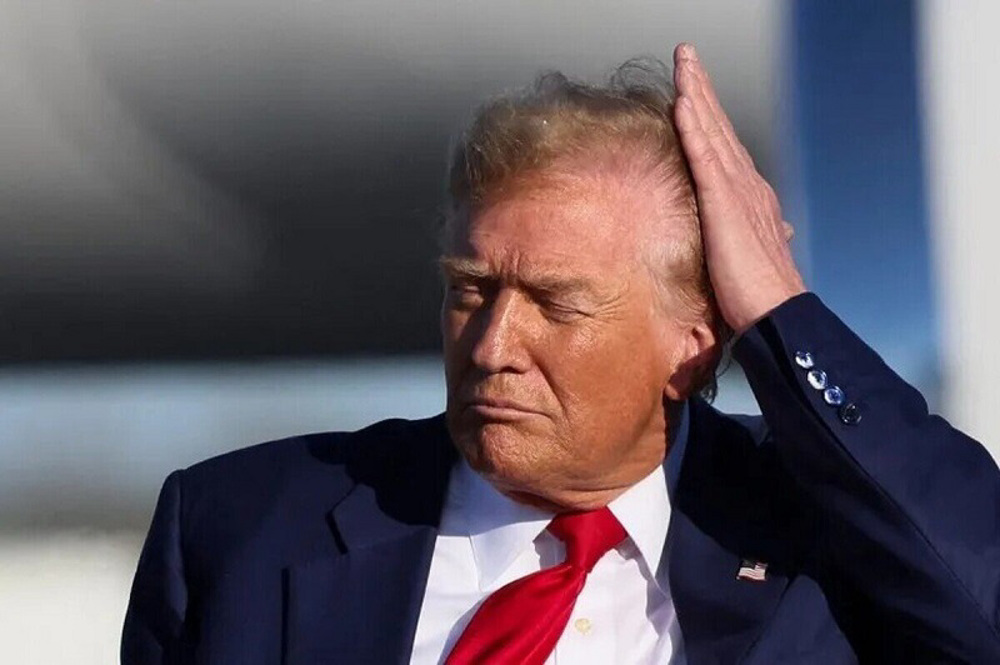
Trump Ukraine mediation muddle
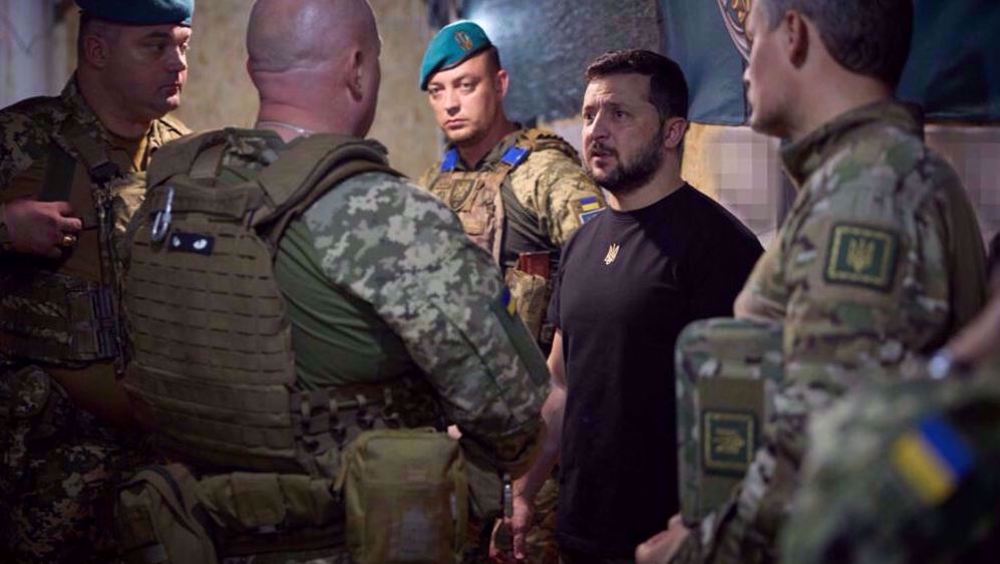
Ukraine peace talks downgraded in London as Kiev rebuffs Trump’s proposal
VIDEO | Press TV's news headlines
Betar US: America's new face of Zionist terrorism and the darker rebirth of Kahanism
‘More serious than before’: Iran-US talks enter critical phase amid hope and caution
Pezeshkian’s visit to Baku heralds new order in South Caucasus
VIDEO | Eight killed, six injured after car rams into crowd at Vancouver Filipino festival
Keffiyeh-wearing Jewish woman assaulted by pro-Israel mob in New York
Hezbollah, Hamas, Islamic Jihad express solidarity with Iran after deadly port explosion
Pezeshkian: Iran ready to share achievements with African nations


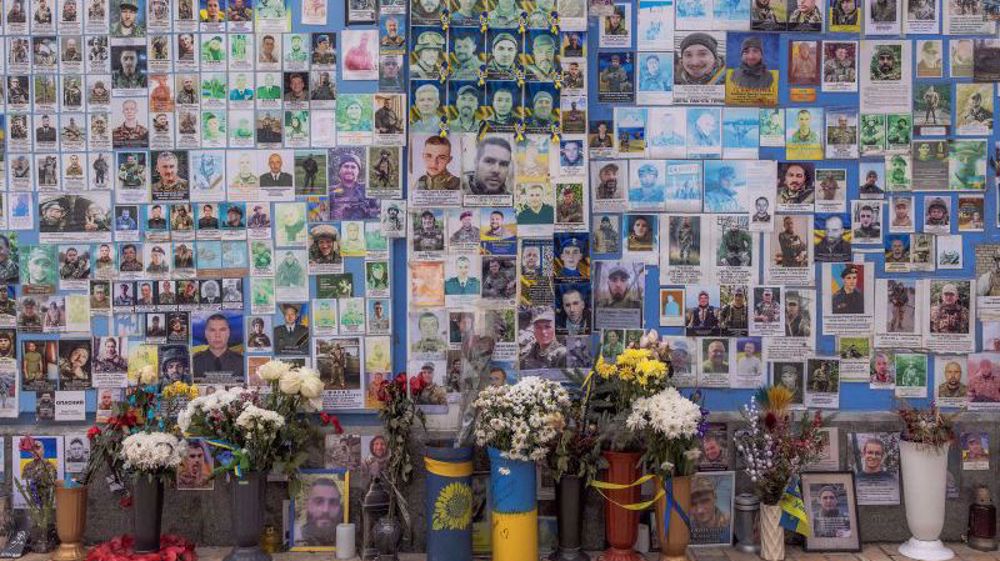
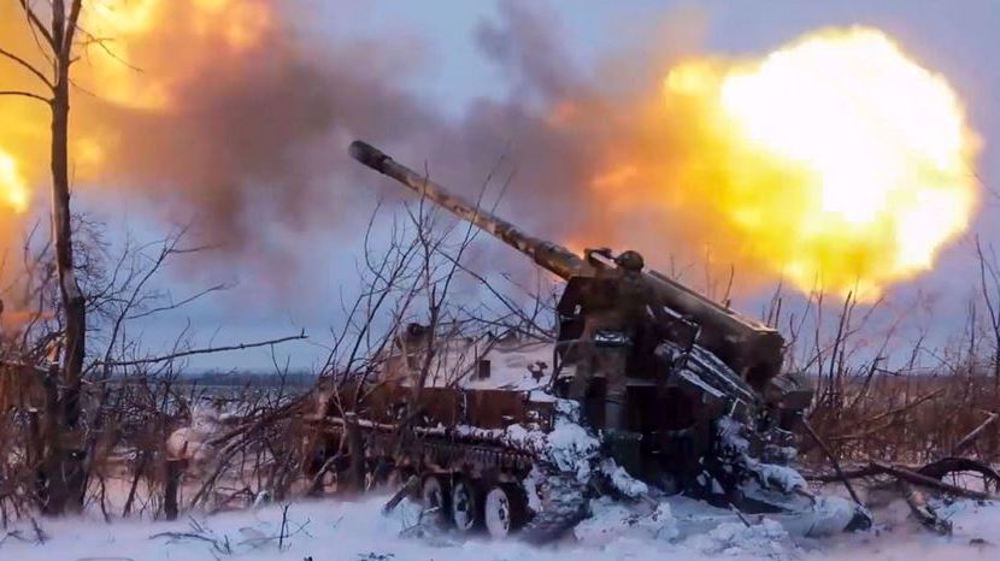
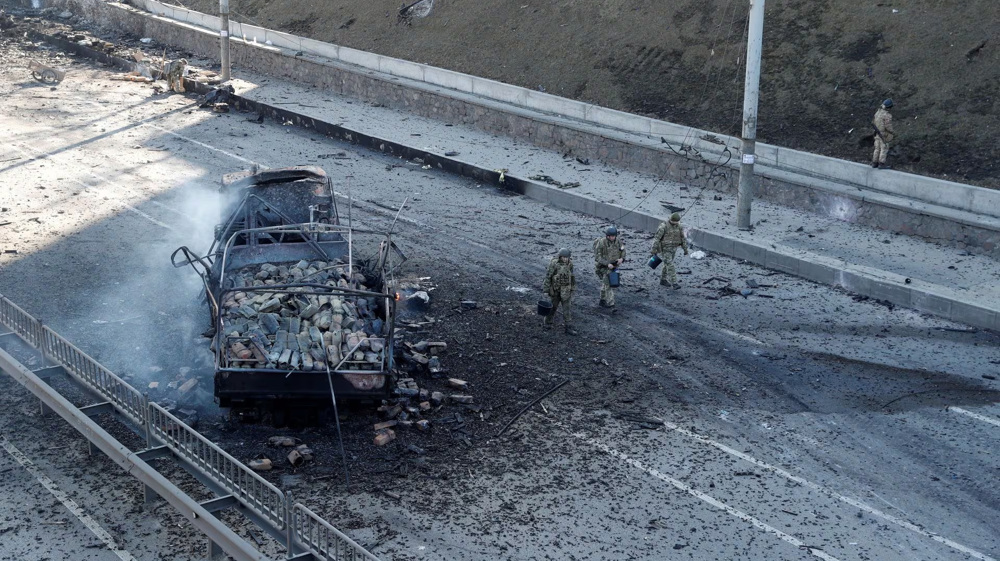




 This makes it easy to access the Press TV website
This makes it easy to access the Press TV website